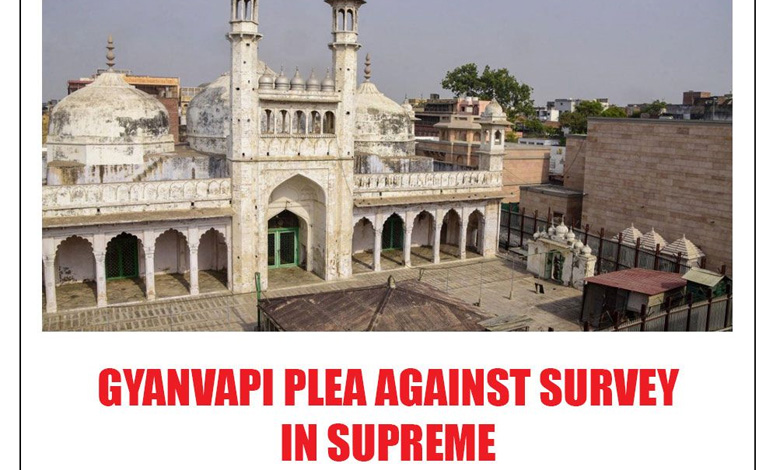24 July, 2023- The Supreme Court received a significant Gyanvapi plea seeking to prohibit a survey near the contested site. Gyanvapi Mosque, located in Varanasi, has been at the center of a contentious dispute for decades. The plea was filed by a group representing the mosque, requesting the court to block any survey conducted by the Archaeological Survey of India (ASI) in the vicinity of the mosque. The court’s attention to this plea comes after the ASI announced plans to conduct a survey in the area to ascertain historical evidence. The Gyanvapi plea aims to maintain the status quo and preserve the sanctity of the site.
The yanvapi Mosque, a revered religious monument, has been a subject of dispute between two religious communities for generations. The land on which the mosque stands has historical and religious significance for both Hindus and Muslims. The recent ASI’s decision to carry out a survey has reignited tensions and concerns among the Muslim community, who fear that it could potentially lead to further claims on the site. In response to this, the group representing the Gyanvapi Mosque approached the Supreme Court seeking intervention to prevent the survey from being conducted.
The Gyanvapi plea argues that any survey in the vicinity of the mosque could disturb the delicate communal harmony and trigger unrest. The group contends that the mosque’s sanctity should be respected and preserved as it has been an Integral part of the region’s cultural heritage for centuries. Additionally, they raise concerns that a survey might lead to unwarranted encroachments or disputes over the mosque’s land, further complicating the already sensitive matter.
The Supreme Court, known for handling such intricate and sensitive cases, has acknowledged the receipt of the Gyanvapi plea and decided to examine the matter carefully. A bench of judges has been assigned to assess the merits and implications of the plea. The court has also granted the group representing the mosque an opportunity to present its arguments formally during the scheduled hearing. This indicates the court’s seriousness in addressing the issue and ensuring a fair and impartial hearing for all involved parties.
As the matter unfolds, various religious and political groups have been closely watching the developments. The dispute over Gyanvapi Mosque has often been a topic of heated debates and discussions, with both sides passionately presenting their claims. The Supreme Court’s decision to intervene has garnered attention and raised expectations among the communities involved.
Conclusion
The Gyanvapi plea filed in the Supreme Court represents a crucial moment in the long-standing dispute over the contested site. The court’s response to the plea will have far-reaching implications on communal harmony and religious sentiments. As the case moves forward, it remains to be seen how the court will balance the rights and sentiments of both communities while upholding the principles of justice and fairness. For now, all eyes are on the Supreme Court as it navigates through this complex and sensitive issue to arrive at a just and lasting resolution.





